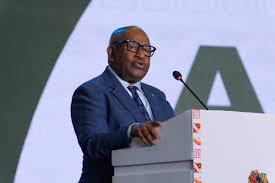
Maître Saïd Larifou, president of the Comorian political movement RIDJA-PATEF and a member of the legal team representing Dr. Succès Masra, has called on African-American organizations and the US Black Caucus to intervene on behalf of the former Chadian Prime Minister, who he describes as unjustly detained.
In an open letter sent from New York during the United Nations General Assembly, Larifou highlighted what he called the “tragic fate” of Masra, framing his imprisonment as part of a broader pattern of authoritarian repression across Africa.
“On the sidelines of the United Nations General Assembly, I felt it necessary to contact your organizations to raise international awareness of the tragic fate of my client, Dr. Succès Masra, who was arbitrarily imprisoned and held hostage by the repressive regime in Chad.
This situation illustrates the worrying deterioration of civil rights on our continent,” he wrote.
Larifou denounced African regimes that, in his view, “confiscate freedoms, plunging Africa into a modern form of slavery, colonialism, and poverty.”
He further criticized the complicity of foreign powers, arguing that “more than sixty years after independence, our continent continues to suffer under the yoke of corrupt, repressive, and bloodthirsty regimes.
These regimes, often supported by foreign powers indifferent to the fate of African populations, act with complete impunity.”
The lawyer also stressed the historical solidarity between African-American civil rights movements and African citizens’ struggles for democracy and the rule of law.
He highlighted electoral manipulation, political assassinations, and the detention of opposition figures as challenges that weaken institutions such as the United Nations and the African Union.
Larifou’s appeal calls on African-American leaders to support the cause of African justice, urging global recognition of the voices and rights of African peoples.
“The voice of African peoples must be heard and respected on the world stage,” he wrote, framing international advocacy as crucial to countering the abuses of authoritarian governments.
The letter underscores rising concern over political repression in Chad and signals a push for greater transatlantic engagement in defending human rights and democratic governance across the continent.



